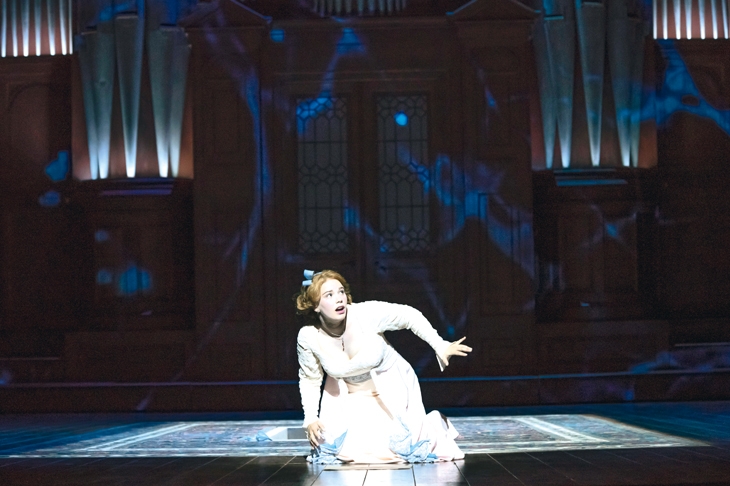The femme fatale was invented in France. A giddy, greedy child in her first incarnation, as the antiheroine of Abbé Prévost’s L’Histoire du Chevalier Des Grieux et de Manon Lescaut (1731), she had no voice of her own. Reshaped as a sphinx by Alfred de Musset, made over as a gypsy by Prosper Mérimée, plumped out with fashionable sentimentality by Massenet and mordant sensuality by Puccini, her function was to beguile and elude, to want something that those who wanted her were unable to give her, then die. In Debussy’s Pelléas et Mélisande even that wanting is stripped away. ‘Ne me touchez pas!’ sings Mélisande, but Golaud, made ugly and old for want of love, cannot or will not listen.
Where Manon grasps at gold, Mélisande lets it slip through her fingers, twice. That Debussy’s setting of Maeterlinck’s play has survived in the theatre is down to the distant glimmer of a lost crown, a lost ring, and impressions of refracted light on water that would find fuller expression in La mer (1905). Here are modal melodies that sound simultaneously ancient and modern; furtive figures for flutes and double basses; a trumpet line so precisely shaded by muted strings that it sounds like a cor anglais; vocal writing that is murmured or growled as though in the haze of hypnosis. Quickened and balanced with extraordinary sensitivity by Robin Ticciati and the players of the London Philharmonic Orchestra, the score has exceptional transparency.
The family is irreparably damaged before Christopher Purves’s bruised, boar-like Golaud finds Christina Gansch’s Mélisande in the forest. The mother of Yniold (Chloé Briot), Golaud’s son, is dead. Geneviève (Karen Cargill), Golaud’s mother, is a widow. The parentage of Pelléas (John Chest), Golaud’s insipid half-brother, is never adequately explained. Both men are said to fear the disapproval of their grandfather, Arkel (sung by Richard Wiegold on opening night).








Comments
Join the debate for just £1 a month
Be part of the conversation with other Spectator readers by getting your first three months for £3.
UNLOCK ACCESS Just £1 a monthAlready a subscriber? Log in